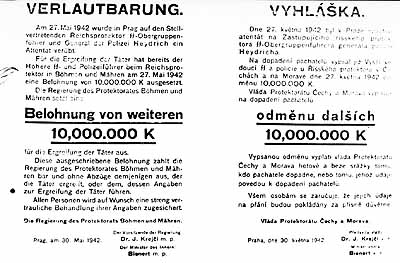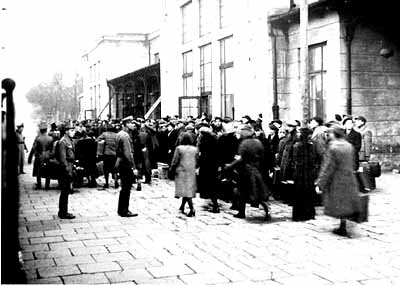Free Republic University, Department of History presents
World War II Plus 70 Years: Seminar and Discussion Forum First session: September 1, 2009. Last date to add: September 2, 2015.
Reading assignment:
New York Times articles delivered daily to students on the 70th anniversary of original publication date. (Previously posted articles can be found by searching on keyword “realtime” Or view
Homer’s posting history .)
To add this class to or drop it from your schedule notify Admissions and Records (Attn: Homer_J_Simpson) by freepmail. Those on the Realtime +/- 70 Years ping list are automatically enrolled. Course description, prerequisites and tuition information is available at the bottom of Homer’s profile. Also visit our
general discussion thread
To: Homer_J_Simpson
Selections from West Point Atlas for the Second World War The Far East and the Pacific, 1941: The Battle of Midway, 3-6 June 1942 Southwest Russia, 1942: German Summer Offensive, Operations, 7 May-23 July 1942
North Africa, 1940: Rommel’s Second Offensive, 21 January-7 July 1942
India-Burma, 1942: Allied Lines of Communication, 1942-1943
2 posted on
06/04/2012 4:10:15 AM PDT by
Homer_J_Simpson
("Every nation has the government that it deserves." - Joseph de Maistre (1753-1821))
To: Homer_J_Simpson
3 posted on
06/04/2012 4:15:57 AM PDT by
Perdogg
To: Homer_J_Simpson
5 posted on
06/04/2012 4:21:32 AM PDT by
Peter W. Kessler
(Dirt is for racing... asphalt is for getting there.)
To: Homer_J_Simpson
this headline reminded me of this book of hippie poetry by Richard Brautigan that was all the rage in college in the 1960s

7 posted on
06/04/2012 4:33:40 AM PDT by
Vaquero
(Don't pick a fight with an old guy. If he is too old to fight, he'll just kill you.)
To: Homer_J_Simpson
I recommend the book, “ The Thousand Mile War.” It’s about the campaign in the Aleutians, the Japanese occupation on American soil and the air, land, and sea battles to eject them. Very brutal and vicious fighting in some of the worst conditions.
8 posted on
06/04/2012 5:06:01 AM PDT by
W.Lee
(No compromise)
To: Homer_J_Simpson
June 4, 1942:
- "Reinhard Heydrich, chief of the Reich Security Police and SD, dies of blood poisoning caused by injuries suffered in the May 27 attack by Czech partisans; See June 9, 1942.
- "The U.S. declares war on Romania."

"News of Heydrich's death on June 4 enraged Hitler and prompted Nazi officials to enlist help to locate his killers.
This bilingual poster advertised a reward of ten million Czech crowns for information leading to the capture of Heydrich's assassins."

"From May 10 to 12, 1942, about 1,500 Jews were sent from Sosnowiec, Poland, to Auschwitz, the first of several deportations from that city.
In August 1943 the Nazis deported Sosnowiec's remaining 15,000 Jews to Auschwitz."
9 posted on
06/04/2012 6:24:40 AM PDT by
BroJoeK
(a little historical perspective....)
To: Homer_J_Simpson
I thought Twitter was something new?
P7 says Rommel was using Twitter in 1942.
11 posted on
06/04/2012 6:54:48 AM PDT by
fso301
To: Homer_J_Simpson
For your evening broadcast, MBS is first with reports on the Midway battle. Unfortunately, it is complete garbage. It will be a few days before the next reports come out. Hopefully they will be better. Enjoy this one though.
MBS - Captain William Graves on the Battle of Midway
29 posted on
06/04/2012 4:49:54 PM PDT by
CougarGA7
("History is politics projected into the past" - Michael Pokrovski)
To: Homer_J_Simpson
- Admiral Spruance decides to launch his attack on the Japanese fleet at the extreme end of his planes range. In total it consisted of 68 dive-bombers, thirty torpedo planes, and 20 fighters.
- After the first strike on Midway by the Japanese, despite some significant damage, the base is not really reduced, and most of its anti-aircraft works are still operational. In the strike 38 Japanese planes are lost and another thirty are too heavily damaged to fly again, a loss of over 60 percent of the aircraft sent.
- At 11:00 the Japanese carrier Hiryu, the only remaining Japanese carrier in the Midway strike force that was not sinking, launched two waves of dive-bombers and torpedo planes against the Yorktown. The carrier was hit by three bombs and two torpedoes causing the commander to order "Abandon Ship!"
- At 7:15 am Nagumo decides to begin rearming his planes for another attack on Midway. At 7:28 am a delayed scout plane from the cruiser Tone report enemy ships bearing 10 degrees. At the same time, dive bombers from Midway led by Major Lofton Henderson attacked the Japanese formation causing no damage.
- At 8:30 Admiral Fletcher finally decides to launch all his torpedo planes and half his dive-bombers along with a few fighters. He holds the rest of his force back as a contingency.
- At a conference at the Harnack House many top German officials here the implications of an atomic bomb for the first time. Some of those at the meeting were Speer, Fromme, and tank designer Ferdinand Porsche.
- Late in the day, American carrier planes located the Hiryu and left her in sinking condition. All in all, four Japanese carriers had been sunk in this single day of air battles.
- Nagumo begins launching his aircraft against Midway. As a precaution, only half of his planes are allocated in this first strike with the rest held in the event that enemy carriers are spotted in the area.
- Shortly after Midway patrols locate Nagumo's carriers, all of Midway's attack aircraft are launched against the Japanese strike force.
- The Kaga was struck by four bombs which destroyed the island superstructure and set off the munitions on the flight deck.
- The Soryu was struck by a bomb that blew away the forward flight elevator. Subsequently, two more bombs exploded among the fuel and munitions on the hanger deck.
- Three dive bombers from the Enterprise strike the Akagi scoring two bomb hits that set off the fuel and munitions strewn across the deck in the ship's rearming effort.
31 posted on
06/04/2012 5:06:50 PM PDT by
CougarGA7
("History is politics projected into the past" - Michael Pokrovski)
FreeRepublic.com is powered by software copyright 2000-2008 John Robinson

